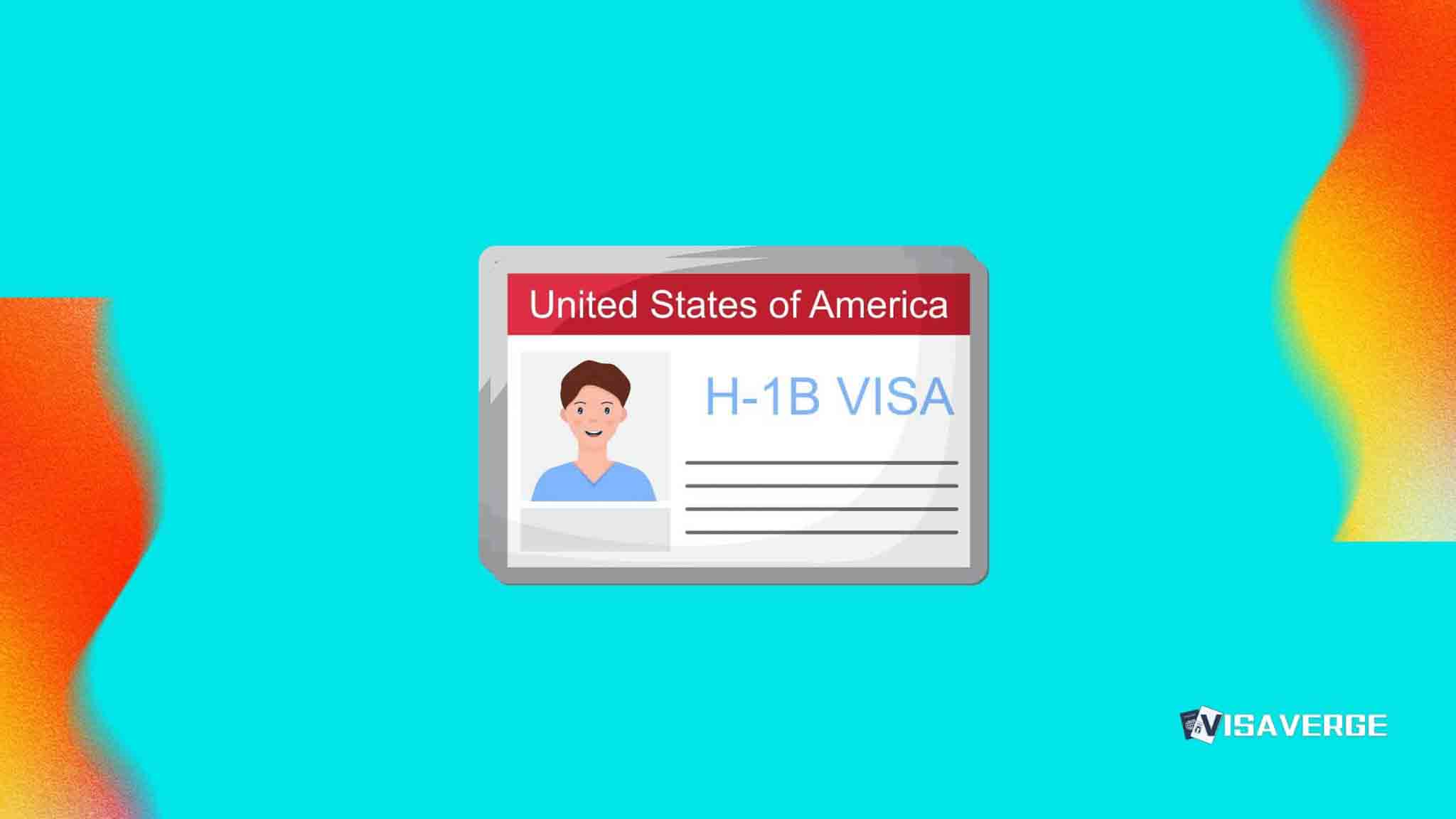Key Takeaways
- Trump’s 2025 executive order to end birthright citizenship challenges the 14th Amendment, sparking legal battles and constitutional debates.
- 22 states and cities filed lawsuits, labeling the order unconstitutional while courts likely block its enforcement.
- Restricting birthright citizenship risks creating stateless individuals, economic strain, and harm to America’s inclusive identity and legal traditions.
On January 20, 2025, President Donald Trump issued an executive order seeking to end birthright citizenship in the United States, sparking a national debate over constitutional law and immigration policy. Birthright citizenship, which is guaranteed under the 14th Amendment of the U.S. Constitution, provides automatic citizenship to individuals born in the U.S., regardless of their parents’ immigration status. This executive order aims to drastically alter how citizenship is defined in the country, and immediate legal challenges have placed this controversial policy under intense scrutiny.
Contesting the Constitutionality of the Executive Order

At the heart of the legal battle lies the 14th Amendment, adopted in 1868, which unequivocally states, “All persons born or naturalized in the United States, and subject to the jurisdiction thereof, are citizens of the United States.” This principle establishes birthright citizenship as an integral component of America’s legal and social framework. However, Donald Trump’s executive order proposes limiting citizenship to children born to at least one parent who is either a U.S. citizen or a lawful permanent resident.
Legal and constitutional scholars widely believe that altering the birthright citizenship provision would require a formal amendment to the U.S. Constitution. Such a change necessitates a two-thirds majority vote in both the House of Representatives and the Senate, followed by ratification from three-fourths (38 out of 50) of the state legislatures. This rigorous process reflects the framers’ intent to safeguard constitutional principles from unilateral or momentary changes. Consequently, Trump’s move to reinterpret birthright citizenship through an executive order has been criticized as a violation of both legal precedent and constitutional norms. Analysts also point out that the executive branch does not possess the authority to override constitutional provisions or adjust them bypassing Congress and the amendment process.
States Lead Resistance via Legal Action
Within hours of the executive order being signed, a coalition of states, major cities, and civil rights organizations filed lawsuits to block its implementation. As of January 21, 2025, attorneys general from 22 states have joined the legal resistance. These states include both traditionally Democratic strongholds and others committed to protecting immigrant rights, such as California 🇺🇸, New York 🇺🇸, Massachusetts 🇺🇸, and Maryland 🇺🇸. Additionally, major metropolitan areas like Washington, D.C., and San Francisco 🇺🇸 have lent their support to the lawsuits.
Leaders at the state level have publicly condemned Trump’s executive order, labeling it unconstitutional and undemocratic. New York Attorney General Letitia James criticized the order as a “flagrantly unlawful attempt” to strip citizenship from American-born children. Similarly, California Attorney General Rob Bonta referred to it as “blatantly unconstitutional and un-American.” These legal challenges are being spearheaded in federal courts, with Massachusetts serving as one of the primary jurisdictions for adjudicating this monumental case. Should these lawsuits proceed as anticipated, courts may issue injunctions to halt the executive order’s implementation while the constitutional questions are litigated.
Potential Additional States to Join the Lawsuits
The coalition of states opposing the executive order is expected to grow in the coming weeks. Several key states, particularly those with strong immigrant populations and Democratic leadership, are considered likely to join the legal challenges. Illinois 🇺🇸 is one such potential candidate, given its long-standing progressive immigration policies. Similarly, the states of Washington 🇺🇸 and Oregon 🇺🇸, both of which have consistently pushed back against restrictive immigration measures, may enter the fold. Pennsylvania 🇺🇸 and Virginia 🇺🇸, which house sizable immigrant communities, could also align with the opposition as public and political pressures mount.
An expanded coalition would not only bolster the legal case but also highlight the broad, multi-state resistance to this unprecedented policy shift. Advocacy groups argue that this pushback signals widespread rejection of immigration policies that are seen as discriminatory and harmful to both individual families and the nation as a whole.
Impacts of Ending Birthright Citizenship
If implemented, this executive order could have sweeping repercussions on individuals, families, and communities across the United States. Currently, around 150,000 children are born annually to parents without legal status or temporary visas. These children, if denied citizenship, would face significant barriers to accessing health care, education, and other essentials for growing up as functional members of society. Moreover, without citizenship, individuals would lack the ability to obtain legal identification such as passports, making travel, employment, and civic participation nearly impossible.
By restricting birthright citizenship, the executive order risks creating a vulnerable population of stateless individuals—those not acknowledged as citizens by any country. Many nations do not grant citizenship simply based on parentage, especially if the parents lack legal residency in that country. This limbo could lead to a generational social crisis, with children excluded from educational opportunities and workforce participation, perpetuating cycles of poverty and marginalization.
The economic implications of this policy are equally concerning. According to estimates from the Migration Policy Institute, repealing birthright citizenship could increase the unauthorized immigrant population by as much as 4.7 million by 2050. This rise would exacerbate strain on social services and disrupt labor markets. Researchers have documented that immigrants and their U.S.-born children provide significant economic benefits, contributing to entrepreneurship, labor force dynamism, and consumer spending. Restricting their inclusion would result in economic setbacks for local economies and, by extension, the nation as a whole.
Shaping History with Legal Precedents
The controversy over Trump’s executive order underscores the enduring legacy of the U.S. Supreme Court’s decision in United States v. Wong Kim Ark (1898). In this landmark case, the Court reaffirmed the 14th Amendment by ruling that children born in the U.S. to non-citizen parents are American citizens. This precedent has stood firm for over a century, forming the basis for judicial resistance against attempts to erode birthright citizenship.
Legal experts anticipate federal courts will likely invoke this precedent to block the executive order. Should the case reach the Supreme Court, its outcome could have far-reaching consequences not only for immigration law but also for the balance of power among the executive, legislative, and judicial branches of government.
Broader Global Context
Birthright citizenship, or jus soli (Latin for “right of soil”), is practiced in over 30 countries. The United States, alongside Canada 🇨🇦 and Mexico 🇲🇽, allows children born within its borders to automatically gain citizenship. While some nations have revised their automatic birthright policies by introducing parental citizenship or residency requirements, the U.S. remains one of the most permissive in this regard. Critics argue that dismantling birthright citizenship would tarnish America’s reputation as a land of opportunity and diminish its long-standing tradition of inclusivity for immigrants.
Globally, many view Trump’s executive order as a departure from America’s foundational values. Advocacy groups and international observers note that the U.S. was built by immigrants and has historically derived strength from its acceptance of diverse peoples. Limiting birthright citizenship, they suggest, risks eroding this legacy.
Conclusion and Future Outcomes
The ongoing legal battle against Trump’s executive order raises pressing questions about constitutional interpretation, executive authority, and America’s commitment to equality. Already, 22 states have initiated lawsuits emphasizing the order’s unconstitutionality, and the coalition against this policy is expected to expand further. Courts will likely block the order’s enforcement, given its direct contravention of the 14th Amendment and precedent established by the Supreme Court.
For a lasting change to birthright citizenship to occur, constitutional amendment processes would need to be followed—a political improbability in the current climate. Until then, this issue remains emblematic of the broader divisions in the United States over immigration policy and the nature of American identity itself.
Advocacy groups, civil rights organizations, and immigration scholars alike will continue to monitor this case closely. As it unfolds, it is clear that the debate transcends procedural legality; it is a test of whether America will uphold its historical values of inclusiveness. For authoritative information about constitutional amendments and their requirements, readers can explore the official National Archives page on Constitutional Amendments.
Amidst this debate, as VisaVerge.com reports, the executive order on birthright citizenship has become one of the most polarizing immigration topics of our time. The stakes are high, and the final decision could significantly reshape the relationship between law, citizenship, and American values.
States challenge Trump’s birthright citizenship ban
A coalition of 22 states and major cities has filed lawsuits to block former President Trump’s executive order ending birthright citizenship, citing constitutional violations and far-reaching consequences.
Why it matters: Birthright citizenship, guaranteed under the 14th Amendment, has been a cornerstone of American identity. Any effort to change it could impact millions and reshape immigration policy.
The big picture:
– Trump’s order seeks to deny citizenship to children born in the U.S. unless one parent is a U.S. citizen or lawful resident.
– Legal experts argue this move is unconstitutional, requiring an amendment rather than an executive directive.
– The Supreme Court’s precedent from 1898 in United States v. Wong Kim Ark reinforces birthright citizenship, posing a significant obstacle to the order.
By the numbers:
– 22 states, including California, New York, and Massachusetts, have already joined the lawsuits.
– An estimated 150,000 children annually could be affected, potentially leaving them stateless or without basic rights.
What they’re saying:
– New York Attorney General Letitia James called the order “flagrantly unlawful.”
– California Attorney General Rob Bonta described it as “unconstitutional and un-American.”
– New Jersey Attorney General Matthew Platkin emphasized, “Presidents are not kings.”
State of play:
– Lawsuits are being filed in federal courts, with Massachusetts taking a central role.
– Additional states like Illinois, Washington, and Virginia are likely to join, amplifying opposition.
Between the lines: Altering the 14th Amendment would require an unprecedented constitutional amendment, needing approval from two-thirds of Congress and three-fourths of states. Legal experts see this as highly improbable in today’s polarized political climate.
Implications:
– Families and communities: Children denied citizenship could face barriers in education, healthcare, identification, and risk statelessness.
– Economic impact: The Migration Policy Institute projects a potential 4.7 million increase in the unauthorized immigrant population by 2050, increasing strain on social systems and slowing economic integration.
– Global image: Critics warn that ending birthright citizenship could tarnish the U.S.’s reputation as a nation built on immigration.
Yes, but: While Trump’s move energizes his base, it polarizes the nation further, risks alienating moderates, and faces strong judicial pushback.
The bottom line: Trump’s executive order on birthright citizenship faces an uphill battle in courts and Congress. Legal and constitutional roadblocks, along with widespread opposition, suggest the policy is likely to be struck down—but not without reigniting fierce debates on immigration and equality.
Learn Today
Birthright Citizenship: The legal principle granting automatic citizenship to individuals born within a country’s territory, regardless of their parents’ status.
14th Amendment: A U.S. Constitutional amendment that guarantees citizenship to all individuals born or naturalized in the United States.
Executive Order: A directive issued by the U.S. President to manage federal government operations, which can carry the force of law.
Jus Soli: Latin term meaning “right of soil,” referring to the practice of granting citizenship based on birthplace.
United States v. Wong Kim Ark: A landmark 1898 Supreme Court case affirming citizenship rights for U.S.-born children of non-citizen parents.
This Article in a Nutshell
Donald Trump’s 2025 executive order to end birthright citizenship ignited fierce debate, challenging the 14th Amendment’s protections. Critics argue executive authority can’t override constitutional rights without formal amendments. Legal battles escalated, with 22 states opposing the order. This controversial move tests constitutional limits, America’s immigrant identity, and its commitment to equality and opportunity.
— By VisaVerge.com
Read more:
• CBP Reinstates ‘Alien’ Term for Noncitizens and Migrants
• Minimum Wage Increases in 21 States for 2025
• United Kingdom Reinstates Visas for Colombian Travelers
• Kuwait Reinstates Foreign Work Visas for Temporary Government Contracts
• Canada Reinstates Citizenship for Foreign-Born Children of Canadians













